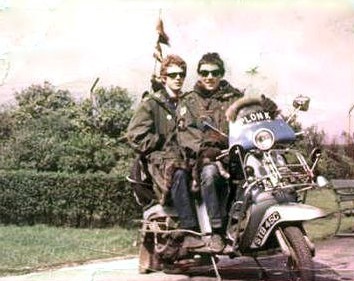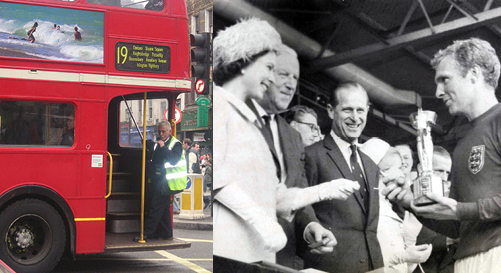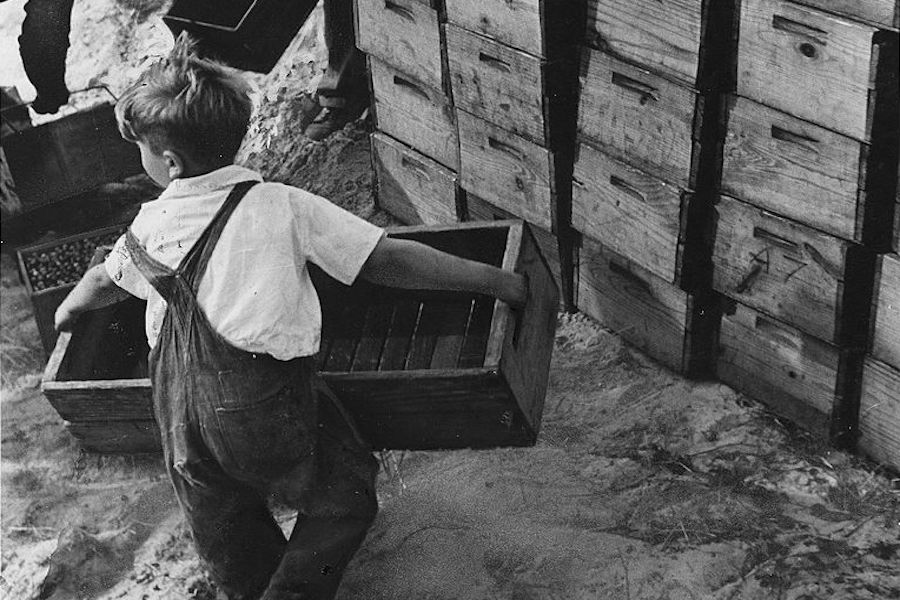In this very special series of exclusive articles for the Property Chronicle, Australian property legend Norman Harker reflects on his extraordinary 50-year life in real estate. He will pull no punches partly because, as he freely admits, Norman has a limited life expectancy of five years from December 2018 due to a diagnosed terminal blood cancer, which he has cheerfully accepted in preference to (in his words) “kicking the bucket without notice”. We are honoured he has chosen us to publish these brilliant, funny and incisive reflections of a lifetime in property.
Chapter 3: Strawberries at twenty paces, conducting buses, and qualifying as a chartered chappie
At seven, after getting a few pennies of pocket money, I felt like a millionaire.
A local strawberry grower paid by weight picked; just seven miles away, it was an easy ride in May with my brothers. Backbreaking work – but for 100lb at 4d per lb in ‘old’ money, it was well worth it! Even though one particular brother and I got split up after playing ‘mushy strawberries at twenty paces’.
In the seaside town we lived near, there were always jobs for a willing seven-year-old and upwards. Peeling potatoes, washing dishes, clearing tables. Close to slave labour rates, maybe, but it was my money. What’s more, I always got enjoyment out of the job, and I worked hard. It was a small town, so if a worker worked hard, then word got around – the same as within the valuation profession.
Child labour? But only a holiday job for me

I learned a lot: mushy strawberries at twenty paces can be messy; potato peeling is an art form; peel onions under water and don’t wipe your eyes; work well and they get you to do more, pay you more, and want you back.
It might sound like exploitation – full time it would have been. But us kids loved it as big pocket money and better than doing nothing. Parents knew where we were and that we weren’t ‘up to mischief’. There were not the problems that kids face today.
By aged thirteen I got to selling ice cream from a machine, through having worked in the attached café clearing tables and shown willing. Selling ice creams lead to me running the whole shop section. One Easter, four years later, I found myself in the middle of the mods and rockers riots between rival gangs with motor scooters and motorbikes. Handled right, with humour and generous-sized ice creams, they were okay.
They often asked what side I was on. I said: “Neither – I’ve only got a push bike.” That was true! “What sort of music do you like?” “Mozart. Why?” – not totally true but I would have been killed by the mods for saying the Rolling Stones and by the rockers for saying the Beatles! Essential training in the art of extemporising.
In the 1964 mods and rockers riots, I was standing on the corner selling ice-creams to both sides!

By eighteen I was needing to finance my way through college and pass the RICS (or ‘chartered chappies’) exams. My parents could not afford to support me because their income was offset by mortgages. Government grants were available but assumed a ‘parental contribution’, so all I got was travel costs and pocket money. I lived at home and travelled to college two hours each way by train.
That was better than it sounds! I had a one-and-a-half hour journey with a comfortable seat on the 6 a.m. express to London and was sure of getting a comfortable seat home before 4 p.m. or after 7 p.m. Three hours’ solid reading time five days a week, throughout term time and during non-working holidays.
This was also year I became a ‘seasonal’ bus conductor. It was unionized, and I got adult wages with special rates for going above 38 hours, or for working Saturdays, Sundays and public holidays. I made friends with the timetable guy and told him I was always available. I was the boring f@rt who worked all year even during the many conductor breaks.
The ‘Poms’ will never tire of saying they won the World Cup in 1966. I was the only person in England who did not see it live – I did four extra half-shifts that day and earned record pay!
Co-operation was two way. I was the first ‘seasonal’ conductor to get overtime because of regulars’ holidays, sickness, or ‘specials’. Two-way informal deals are a feature of relationships between valuers exchanging evidence and between valuers and market players. How else can we form our opinions of value? You aren’t ready for the truth about guessing!
I was the only person in England who didn’t see the 1966 World Cup match – I was conducting a bus like this all day (but mine was green)

I never regretted working my way through college – then or now! I got life experience. There used to be a TV series called ‘On the Buses’. Being a bus conductor was nothing like that – they could never have shown that and kept their licence.
I ended up passing ‘chartered chappie’ exams, being very well read in all subjects, and ready for my first job as a valuer.
Image sources: fruit picking image is Child Labor, Cranberry Bog, 1939, by Arthur Rothstein (Brooklyn Museum); mods on scooter image is by Quatro Valvole.







